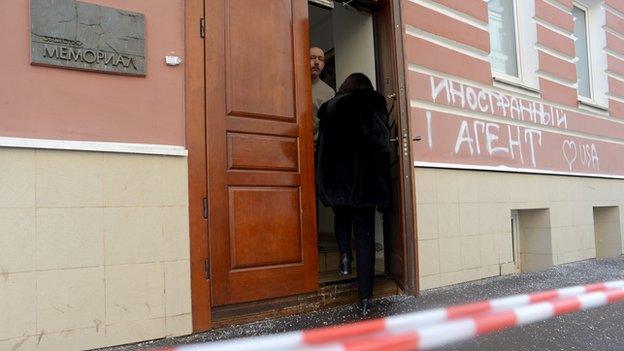Russia censures Memorial rights group as 'foreign agent'
- Published
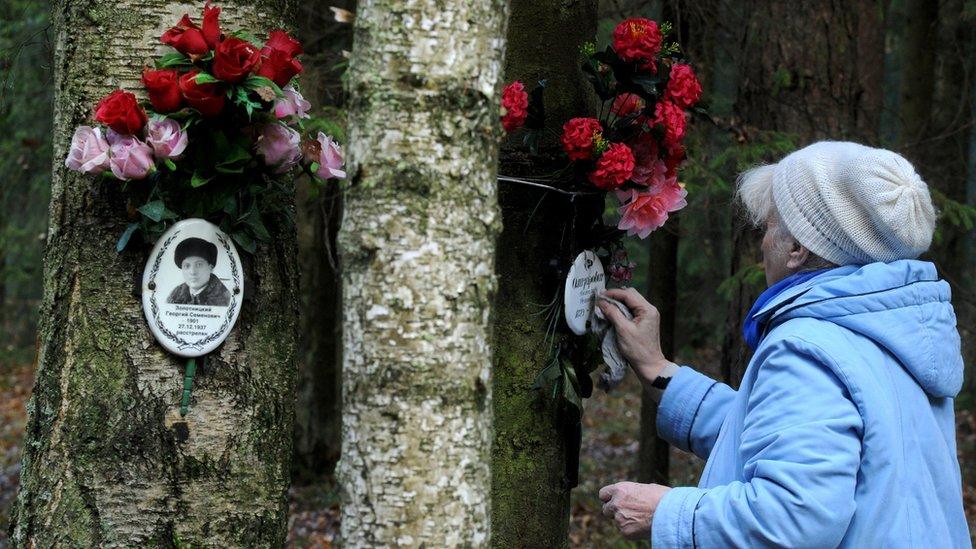
Victims of Stalin's regime of terror are commemorated in a forest on the outskirts of St Petersburg
Russia's justice ministry has put the Memorial human rights group in St Petersburg on a list of organisations labelled as "foreign agents".
Memorial has documented Soviet human rights abuses - especially the terror unleashed by Joseph Stalin in the 1930s - as well as abuses in Chechnya.
The "foreign agent" label echoes the Stalin-era denunciations of alleged anti-Soviet spies.
Memorial's director Arseny Roginsky called the move "a huge blow".
The "foreign agents" law was passed in 2012 to crack down on foreign funding of non-governmental organisations (NGOs). There are now 101 NGOs on the list.
'Political activities'
Quoted by Tass news agency, Mr Roginsky said Memorial was "one of the most effective public organisations" chronicling Soviet abuses, to help prevent any future repetition of them.
Memorial's branches in Moscow, Yekaterinburg and the Komi region - in northern Russia - were also put on the "foreign agents" list , externalbefore the St Petersburg branch.
Russia has also listed the independent election monitoring group Golos as a "foreign agent".
Several other NGOs, including some gay rights groups, have been shut down under the "foreign agents" law.
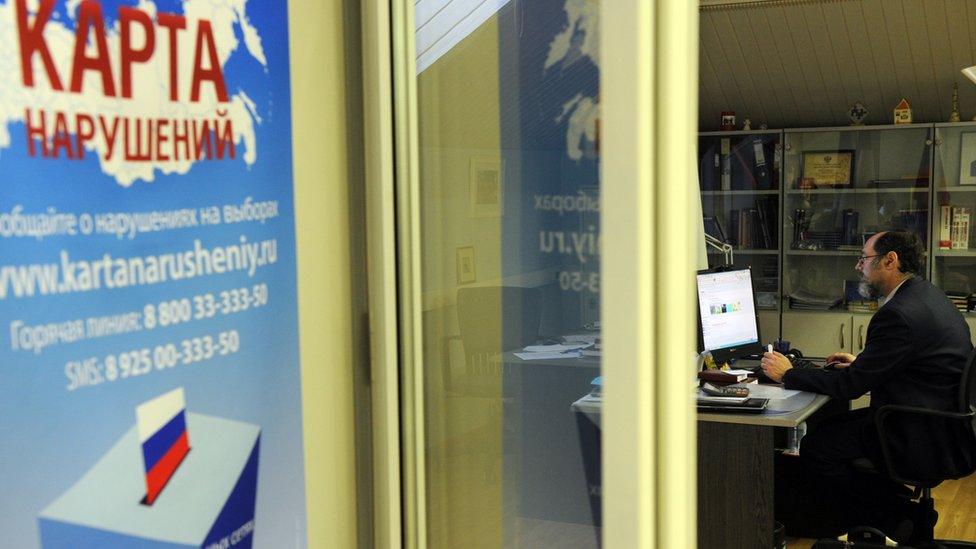
The independent election watchdog Golos gets foreign help - and has also been labelled a "foreign agent"
Memorial was established in the late 1980s by dissidents including the late Andrei Sakharov, a nuclear physicist.
Millions died during Stalin's purges of Soviet citizens accused of plotting against the Communist authorities. Besides those who were shot, there were many victims in the harsh, remote labour camps - the so-called Gulag system.
According to the justice ministry, the St Petersburg Memorial branch received funds from various foreign organisations including the European Commission and the US National Endowment for Democracy (NED), which has been labelled "undesirable" under Russian law.
Two British academic institutions - New College Oxford and Middlesex University - are also listed as donors to Memorial.
New College Oxford later told the BBC that it had paid £5,010 in 2012 to help set up Memorial's Virtual Gulag Museum.
The college said it was a one-off sum for historical research and "we have not provided support for human rights activities or political advocacy".
The Memorial offices were searched on Friday and the justice ministry accused the NGO, external of engaging in political activities to influence Russian public opinion.
In a statement, external, Memorial in St Petersburg said it would defy the order to put the label "foreign agent" on its publications and would continue its work, using the Veniamin Ioffe Educational Centre.
Green group targeted
The "foreign agents" list also includes Bellona, a Norwegian environmental group with a branch in Murmansk, where activists monitor Russian nuclear activities, including the decommissioning of nuclear submarines.
Last month Bellona Murmansk was shut down by the authorities. But the group's director Nils Boehmer said it would continue its work under a different structure. That "will free it from the yoke of being branded a foreign agent", said Mr Boehmer on Bellona's website, external.
"It is yet another challenge the group has had to face, but we are again rising above it and we are still doing the hard work of enumerating radiation threats in an atmosphere that is hardly conducive to transparency," he said.
Update, 13 Nov 2015: The story was updated after New College Oxford sent a statement to the BBC explaining their support for Memorial.
- Published30 July 2015
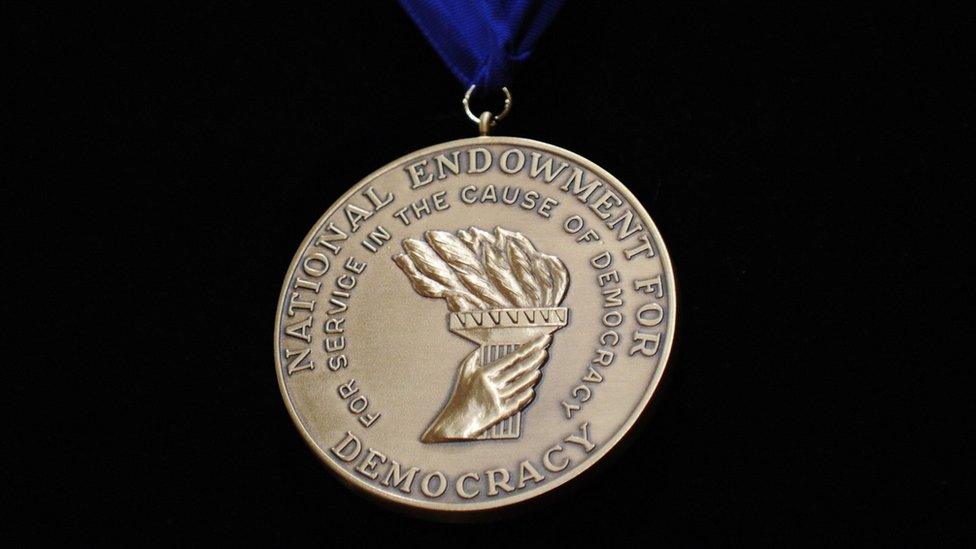
- Published30 October 2015
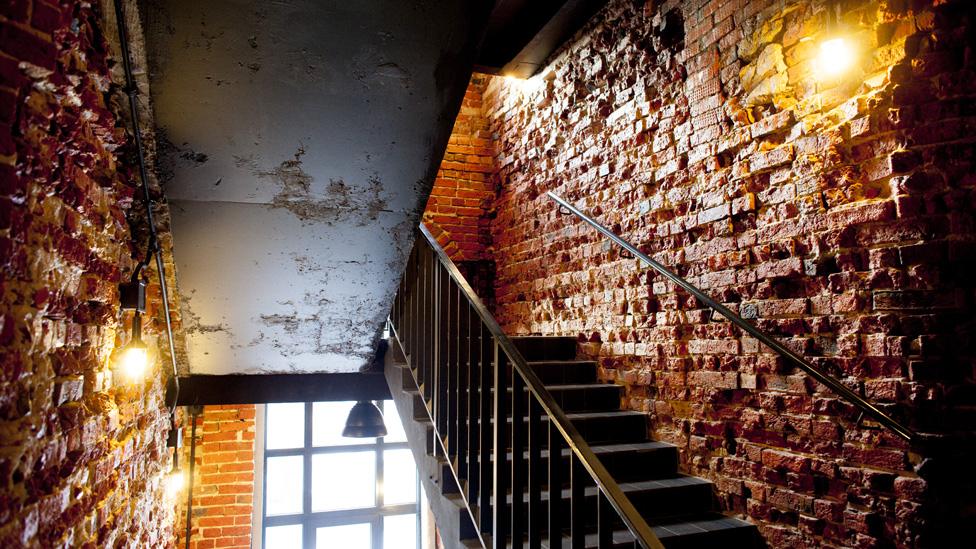
- Published30 October 2014
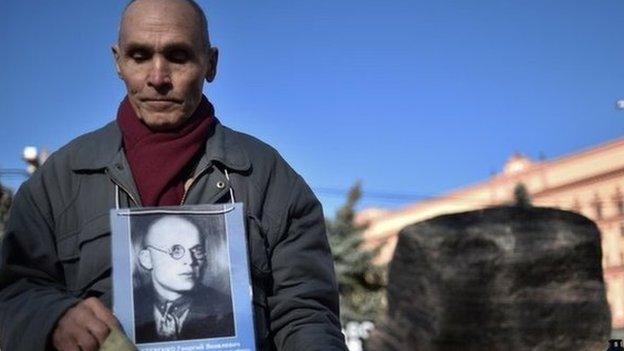
- Published25 March 2024

- Published22 March 2013
